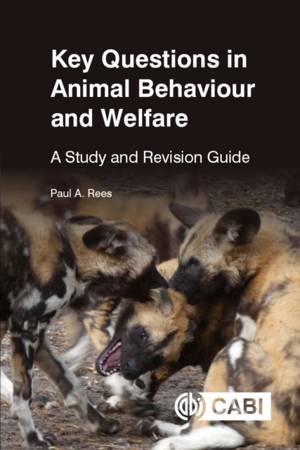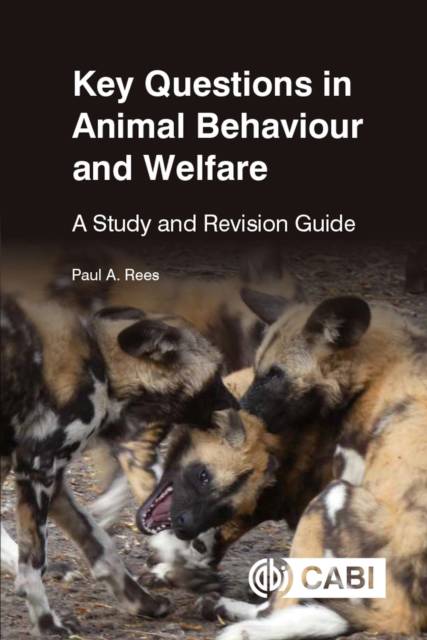
- Afhalen na 1 uur in een winkel met voorraad
- Gratis thuislevering in België vanaf € 30
- Ruim aanbod met 7 miljoen producten
- Afhalen na 1 uur in een winkel met voorraad
- Gratis thuislevering in België vanaf € 30
- Ruim aanbod met 7 miljoen producten
Zoeken
€ 35,95
+ 71 punten
Omschrijving
An understanding of animal behaviour and welfare is an important requirement of a wide range of programmes of study including biology, zoology, animal welfare, animal behaviour, psychology and zoo biology. This book is intended as a study and revision guide for students following programmes of study in which animal behaviour and welfare are an important component. It contains 600 multiple-choice questions (and answers) set at three levels - foundation, intermediate and advanced - and grouped into 10 major topic areas: 1. Foundations and history of animal behaviour and welfare 2. Basic concepts and mechanisms in behaviour 3. Biological basis of behaviour 4. Learning, memory and training 5. Territoriality, navigation and migration 6 Animal cognition and communication 7. Behavioural ecology and social behaviour 8. Measuring, recording and analysing animal behaviour and welfare 9. Animal exploitation and welfare 10 Animal rights, ethics and law The book has been produced in a convenient format so that it can be used at any time in any place. It allows the reader to learn and revise the meaning of terms used in the study of animal behaviour and welfare, methods of recording behaviour and assessing welfare, the physiology of behaviour, learning, memory, cognition, behavioural ecology, animal rights and much more. Many of the questions require students to use their knowledge to interpret information provided in the form of graphs, data or photographs.
Specificaties
Betrokkenen
- Auteur(s):
- Uitgeverij:
Inhoud
- Aantal bladzijden:
- 240
- Taal:
- Engels
- Reeks:
Eigenschappen
- Productcode (EAN):
- 9781789248975
- Verschijningsdatum:
- 16/03/2022
- Uitvoering:
- Paperback
- Formaat:
- Trade paperback (VS)
- Afmetingen:
- 156 mm x 234 mm
- Gewicht:
- 525 g

Alleen bij Standaard Boekhandel
+ 71 punten op je klantenkaart van Standaard Boekhandel
Beoordelingen
We publiceren alleen reviews die voldoen aan de voorwaarden voor reviews. Bekijk onze voorwaarden voor reviews.







